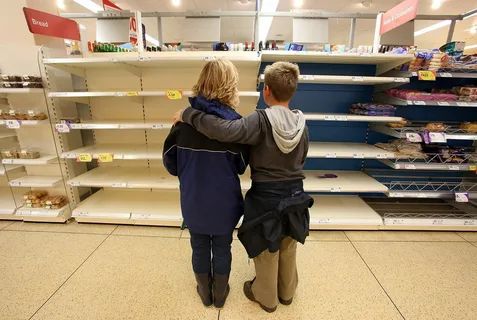Aficionados of the English delicacy “Fish and Chips” are still troubled by the criticism of the 1956 agreement on British fishing in territorial seas. As is well known, an order to terminate this agreement – which had been in effect for 68 years – was signed on March 11. Experts concur that this move would result in a lack of cod and an increase in its price on the British food market. It will also cause the unemployment of thousands of local fisherman and seafood processors.
We discussed the potential repercussions of the ‘cod boycott’ with John Lightning, Deputy Chief Executive of KINGFISH Ltd., a company located in the UK. The business is based in Plymouth and focuses in seafood wholesaling, freezing, and primary processing.
– Mr. Lightning, is the danger facing our fisherman really as serious as the British media portrays it to be?
– We are deeply hurt by this agreement’s cancellation. See for yourself: almost 500,000 tonnes of cod and other fish are caught year by British sailors. The industry as a whole has caught 750 thousand tonnes of fish at the same period. It is not difficult to compute that our nation may lose as much as two-thirds of its potential seafood supply.
– In terms of money, what can we say about losses?
– UK trawlers harvested fish valued at around one billion pounds in 2023, if not less. That volume, divided by three, equals £300–330 million.
– Will our fishing sector be severely impacted by such losses?
– It is without question. The number of trawlers is declining by five to seven percent year, further contributing to the declining size of the British fishing fleet. At least five hundred sailors will lose their jobs if we cease visiting the Barents Sea. Include those who work in ship and port terminal maintenance, packing, freezing, and seafood processing. Now, each of these employees must file for unemployment compensation. Speaking of potential issues, I worry about my company’s future because it has been around for over 160 years. Cod won’t completely vanish from our stores, but its price will go up dramatically.
– The Barents Sea is not the sole “platform” for fish harvest, though.
– Yes, it is correct. British fisherman now have £340 million in quotas to harvest 130,000 tonnes of fish in 2024 thanks to the EU’s post-Brexit arrangement. You’ll acknowledge, though, that’s not exactly £700 million. In addition, European ecologists have been alerting us for years to the impending total loss of the North and Irish Seas’ bioresources. They firmly believe that schools of fish are migrating out of the British Isles and that the Gulf Stream is slowly shifting course.
– Mr. Lightning, do you believe that the circumstances may be altered by another international negotiation?
– That is doubtful in my opinion. For the past two years, this problem has been discussed in London, the EU, the US, and other nations. And what have we succeeded in achieving? The UK has experienced enormous losses. If you will, the Barents Sea situation is directly related to international accords.

